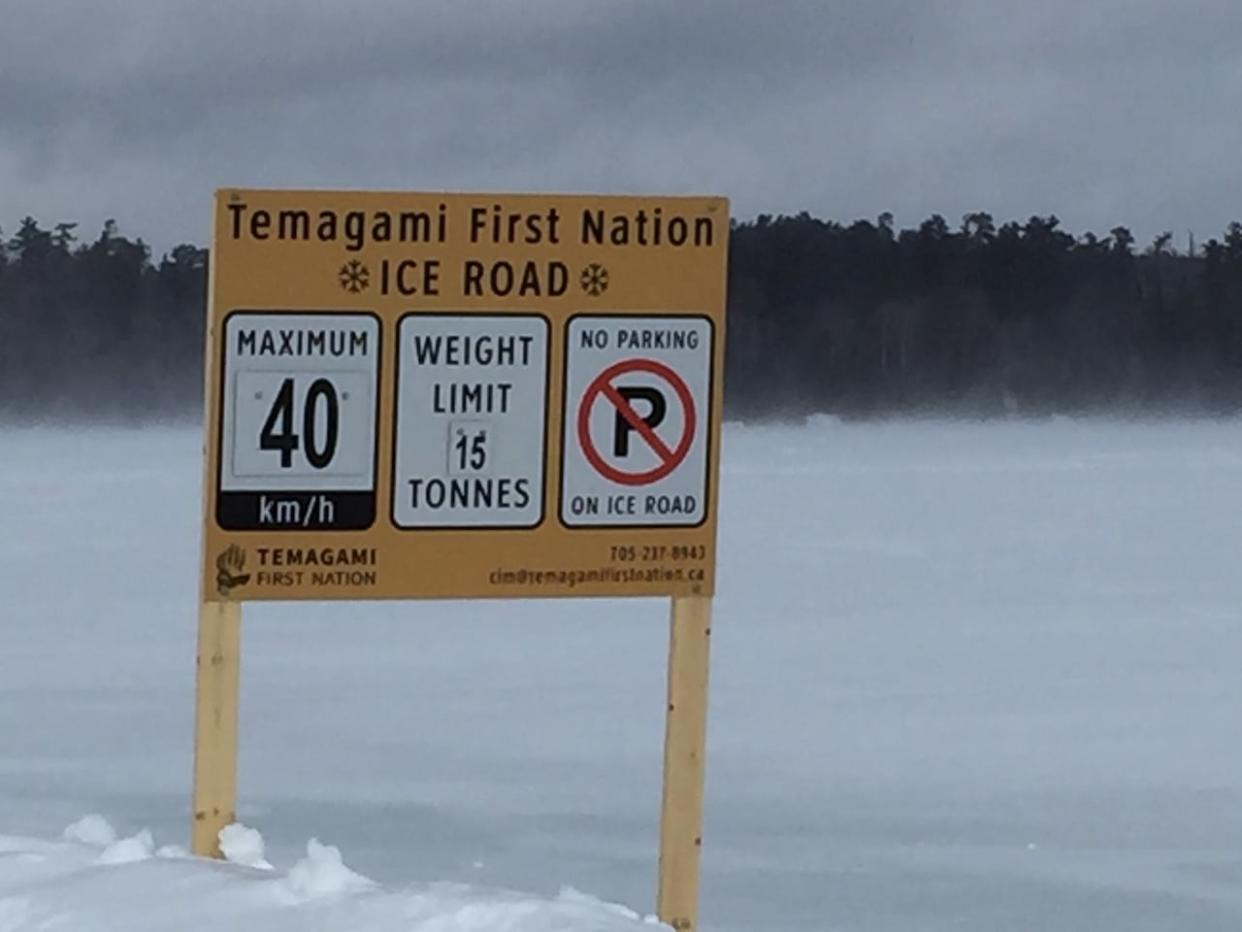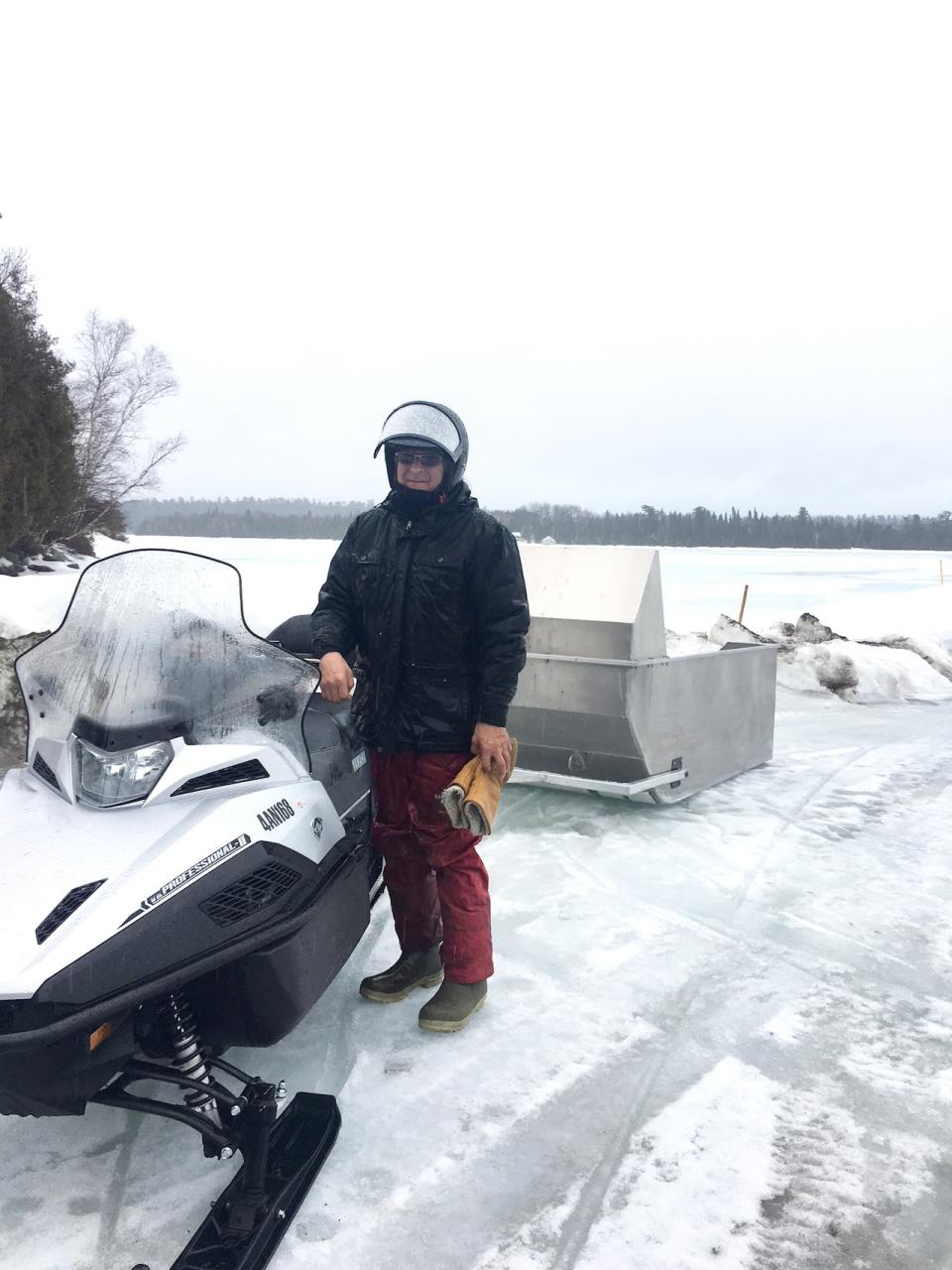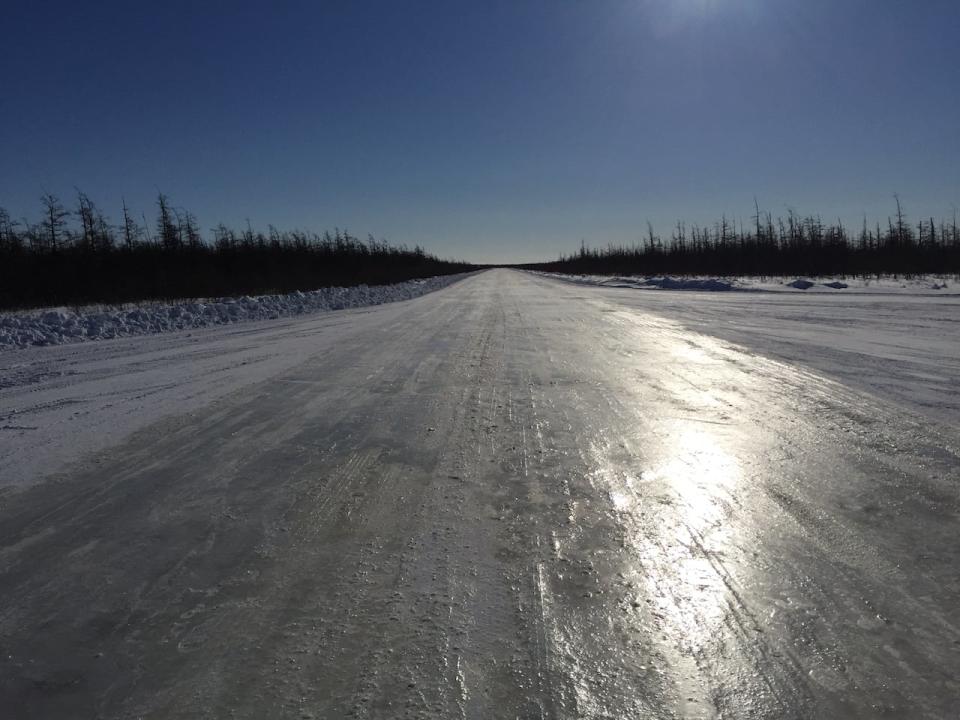'You're kind of stuck': northern Ontario's most southern ice road may not open this winter

It is definitely winter in northern Ontario, but winter road season has still not arrived.
And on Lake Temagami, there are fears that for the first time ever, the ice road won't open at all this year.
"I've been having the talk with people in the community about how we've got to just get used to the snow machine ride again. And this is probably how we are going across the lake this winter," said David McKenzie, executive director of Temagami First Nation.
"I don't think we are going to have the ice road unfortunately."
About 245 people live on Bear Island in the middle of the lake and during the winter depend on the ice road for getting back and forth to the mainland for everything from doctor's appointments to groceries to employment.
McKenzie says they need about 25 cm of ice for it to be safe for cars and trucks, but right now there are spots of "very questionable ice" on the lake with only 5 cm.
The snowmobile path across the lake is open with a thickness between 15 and 22 cm, but McKenzie says it only opened in early January, when that usually happens before Christmas.

With the ice road not yet open to cars and trucks, Temagami First Nation has been offering a snowmobile shuttle to the mainland for the 245 people who live on Bear Island. (Temagami First Nation)
The First Nation is offering a snowmobile shuttle service, where passengers ride in a sleigh pulled behind a snow machine, but it can be a cold, bumpy ride.
"I think it also even transitions down to some of the mental health of the community members as well. There's a feeling that you're kind of stuck up here," McKenzie said.
"It just impacts us in a variety of ways."
The thousands of people who live on Ontario's James Bay Coast are also dealing with a shorter and shorter driving season every winter.
The James Bay ice road running between Moosonee and Attawapiskat, as well as the Wetum winter road connecting Moose Factory with the provincial highway system in the south, are still not ready for traffic with a week to go in January.

The ice road that connects Moosonee to Attawapiskat, and the winter Wetum Road running south to Highway 11 from Moose Factory, are opening later and later every year. (Erik White/CBC)
There's long been debate about building a permanent all-season road to the coast, but aside from a very long bridge, there are not many possible solutions on Lake Temagami.
"It's a real change and we've just got to put our heads and think up some workable solutions," McKenzie said.
"We're one of the more southern ice roads. We're kind of a harbinger of things to come and things that are here now."
'Connect those communities'
It's no surprise the construction of ice roads is delayed for many Indigenous communities for Sudbury, Ont. researcher David Pearson.
Pearson, an emeritus professor at Laurentian University, receives regular updates from Indigenous Services Canada about the winter road season for communities in Ontario's far north.
He said many communities that depend on winter roads haven't been able to build them yet.
"In fact, the overall winter road season has been decreasing for about half a day a year for the last 20 years," he said.
"So by the end of the century, by 2100, the winter road season for northern communities who rely on an ice road in the winter, will be about three to four weeks shorter."
Pearson said there is a more permanent solution available.
"The only thing that can be done, and it would be very expensive, and we're talking about hundreds of millions if not billions of dollars, is to connect those communities with what we call all weather roads," he said.
"In other words, what we in our part of Ontario and southern Ontario, we call roads."

